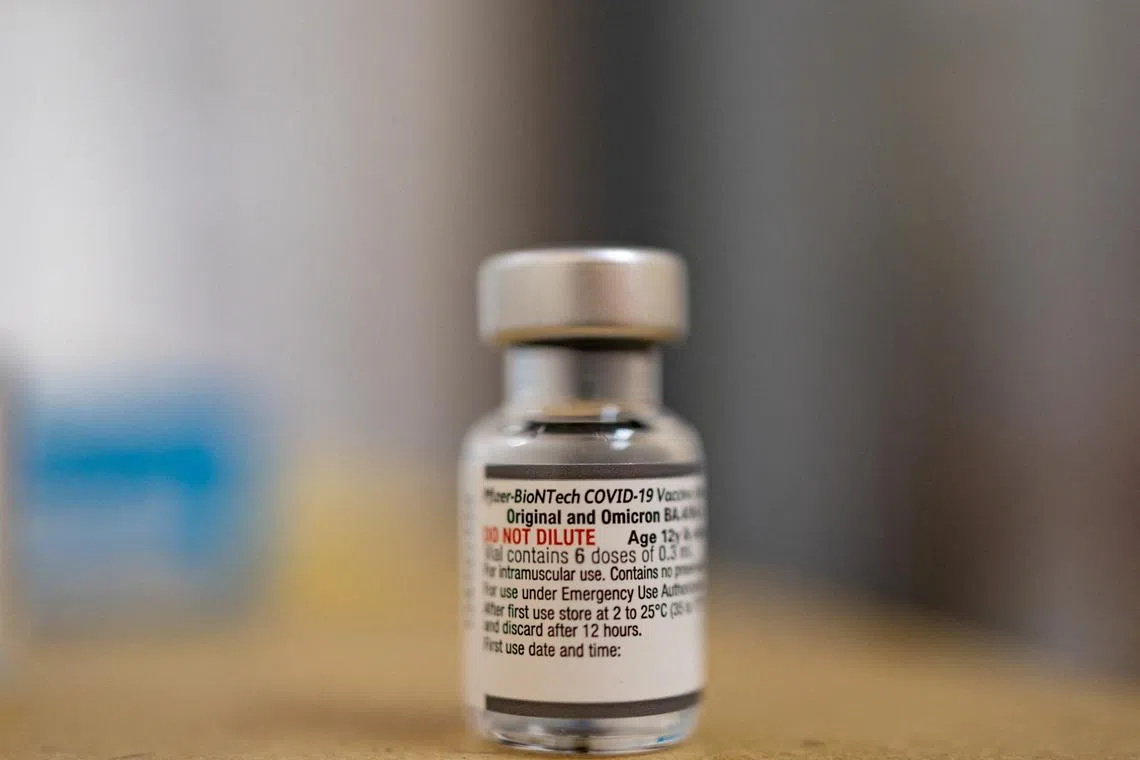BioNTech’s top exec says China considering emergency use of its Covid-19 vaccine for foreigners
Sign up now: Get ST's newsletters delivered to your inbox

It would be the first time a Western-developed Covid-19 shot has been endorsed in China.
PHOTO: REUTERS
Follow topic:
SINGAPORE – China is considering emergency approval for BioNTech’s Covid-19 vaccine to make it available to foreigners living in the country, said the company’s chief operating officer Sierk Poetting.
Government-level talks are still at an early stage and BioNTech is not involved yet, he said on the sidelines of a conference in Singapore on Monday.
The firm has submitted the data necessary to the Chinese authorities for their discretion, he said, adding that there has not been a timetable for a potential approval yet. “How exactly this will work out we don’t know yet. We are in the process of working on this. So, this might be the very first step.”
His comments echo those of German Chancellor Olaf Scholz, who earlier this month said Chinese leaders will make the vaccine shot from BioNTech available for foreign nationals in China, in a partnership with Shanghai Fosun Pharmaceutical Group.
After three years of stringent border controls, the world’s second-largest economy appears to be planning to ease its zero tolerance of the virus, including a shortened mandatory quarantine period for inbound travellers and the removal of a system penalising airlines for bringing in infected passengers.
Officials have also placed more emphasis on vaccination in recent statements, raising the prospect that China will emulate the route that countries such as Singapore and South Korea have taken to reopen, which would require more widespread vaccination, especially among its resistant elderly.
If the vaccine is even conditionally approved, it would be the first time a Western-developed Covid-19 shot has been endorsed in China. Fosun Pharma already supplies the inoculation to Hong Kong, Macau and Taiwan, while BioNTech is working with Pfizer outside Greater China.
Though the vast majority of the country’s population has already been vaccinated, the Chinese authorities have relied on locally developed shots such as those from state-backed Sinopharm and Sinovac Biotech.
Studies have shown that two doses of the Sinovac vaccine offers less protection than mRNA shots such as BioNTech’s in preventing severe infections or death.
A limited approval of the vaccine in China could also help ease some pressure on BioNTech, which said some deliveries of the shot it sells with Pfizer have moved into next year as demand has waned, raising concerns about the company’s future revenue for its only marketed product. BLOOMBERG

